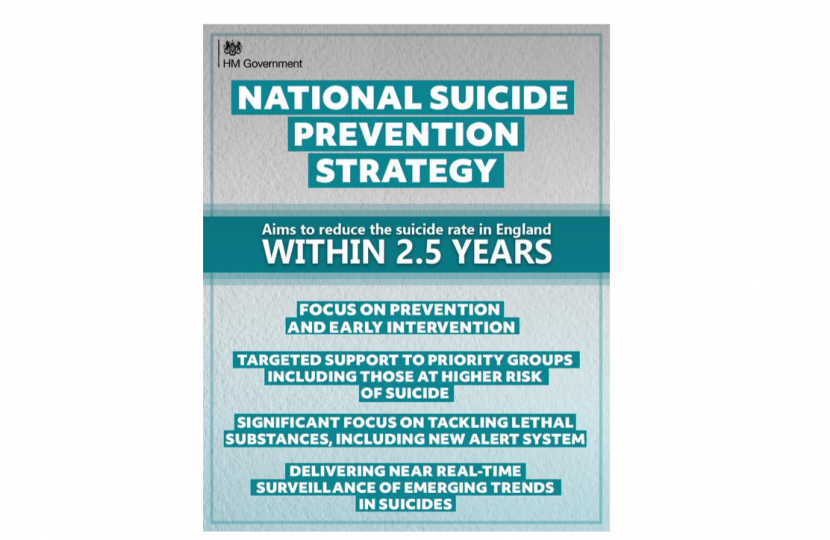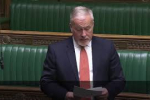
Thousands more people approaching a crisis will get the support they so desperately need, and fewer loved ones will go through the heartbreak of losing a friend or relative to suicide, as the government launches a new national strategy to rapidly reduce England’s suicide rate
The National Suicide Prevention Strategy delivers a commitment to see the number of suicides in England decrease within two and a half years at the very latest.
Over 100 measures have been outlined in the cross-government strategy aimed at saving lives, providing early intervention, and supporting anyone going through the trauma of a crisis. This includes:
- a new national alert system to notify relevant authorities – like schools, universities, and charities – of emerging methods of suicides and risks, and any required actions that can reduce access or limit awareness
- fresh guidance issued to first responders, recognising new and emerging methods and how such incidents should be dealt with
- near real-time surveillance of trends in tragic suicides to be introduced on a national scale this year – enabling more timely and targeted actions
- a government pledge to collaborate with countries around the world to target and stop suppliers of dangerous and lethal substances at the source
Last month the government launched a £10 million Suicide Prevention Grant Fund, calling on the voluntary sector across England to apply for funding until 1 October 2023 to continue supporting tens of thousands of people experiencing suicidal thoughts. It comes alongside an expected spend of £13.6 billion this year alone to transform the country’s mental health services so millions of people can quickly access NHS support.
The government is committed to ensuring children and young people receive the mental health care they deserve. It is going further and faster to achieve that.
Millions of children in schools across England will have access to a dedicated mental health support team by the end of March 2025, with at least half of school pupils set to receive such support. Mental health support teams intervene where a mild-to-moderate mental health issue is identified and ensure children and young people are both protected and supported.
As part of its ongoing work with the Medicines and Healthcare products Regulatory Authority (MHRA), the government will explore whether regulatory change is required to decrease how many tablets like paracetamol can be sold to a customer or patient at once.
The new national alert system on emerging methods or risks will mean anyone who comes into contact with potentially dangerous new methods of suicide will have a direct link into central government to report it, for consideration and discussion at the already established cross-sector emerging methods working group.
Through this, alerts will be circulated to all authorities who should be aware and may be required to take mitigating action. If the method in question is being used predominantly by children or young people, for example, every single school and headteacher in the country will receive a government alert. This one-page alert will lay out the risks and give clear instruction about how to react to safeguard those who could be affected.
Change on a national scale is vitally important. Female deaths by suicide are heartbreakingly increasing at a higher rate than male deaths. It’s imperative such trends are captured as early as possible and preventative measures put in place to save lives. The government will therefore work much more closely with the police to use its data about ‘suspected’ suicides, as well as with the Office for National Statistics, to get an indication of trends much more quickly. The government will publish a monthly report on its near real-time findings.
Commenting, Richard Fuller MP said:
Too many people are still affected by the tragedy of suicide, which is so often preventable. That is why I welcome the launch of a new National Suicide Prevention Strategy, with over one hundred actions to help us decrease the number of suicides in England within two and a half years, including a national alert system to combat emerging methods of suicide and refreshed guidance for first responders.
The NHS Long Term Workforce Plan sets out an ambition to grow the mental health workforce by 73% by 2036 to 2037, and the workforce already continues to grow to help cut waiting lists – one of this government’s top five priorities. In March 2023, there were almost 9,300 more mental health staff working than the previous year.

